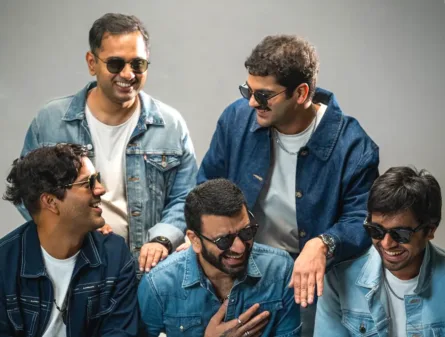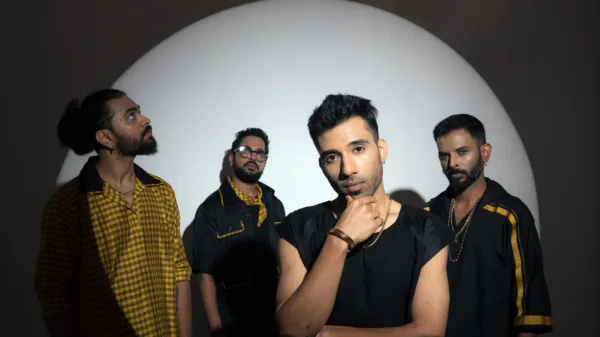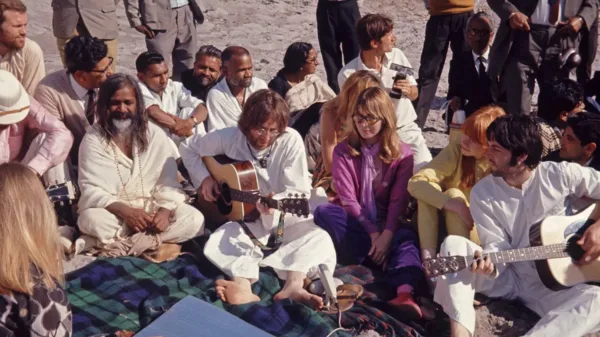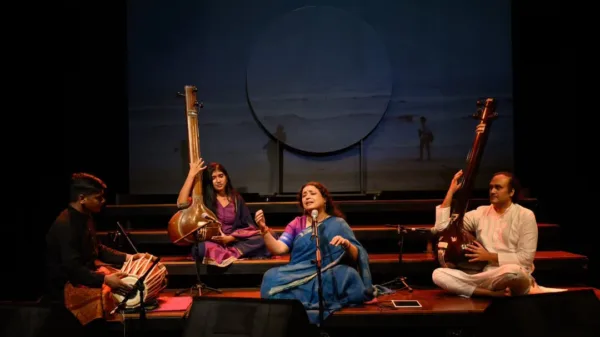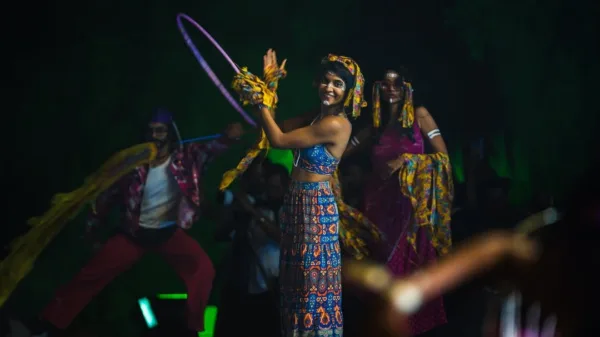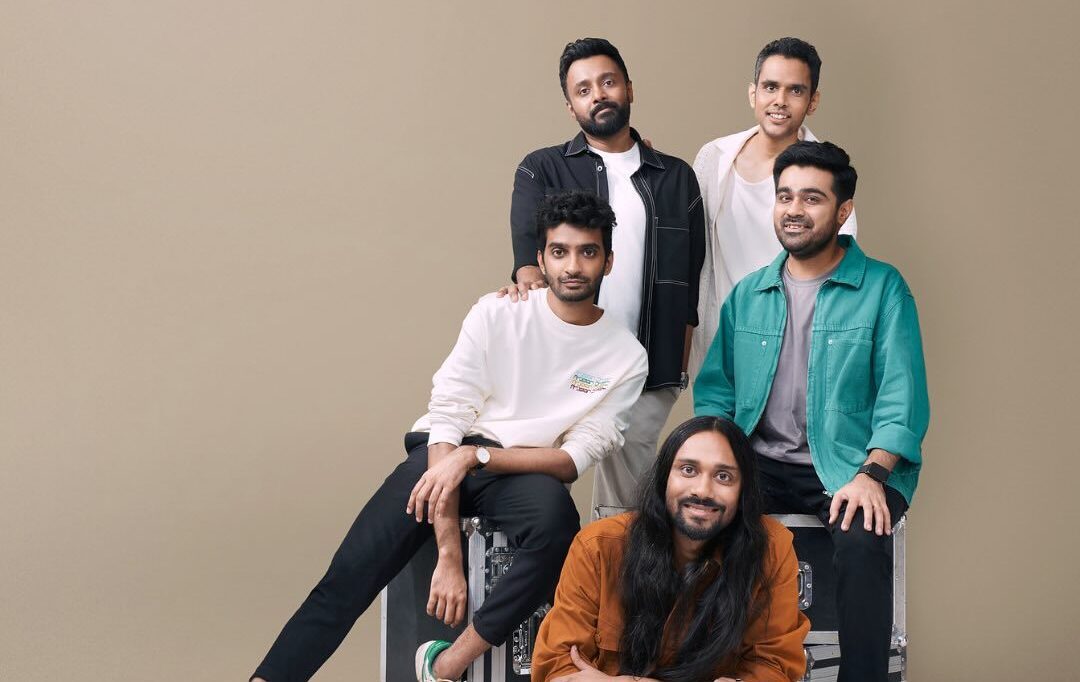Once upon a time, or specifically five years ago, my father had made an off-hand remark : “I do not understand how you do not listen to more rock music, it fits you so well” while his eyes were glued to his TV set that had on its screen a Bengali rock medley with a few iconic headbangers stitched together, performed by a reality show’s participants. I had been baffled by the statement, — with my years of painstaking training in Bharatnatyam and Kathak and unfruitful attempts at mastering Hindustani classical, and my penchant towards any music that is made by a divorced white woman in her 30s did not form a reality which would have rock music as one of the obvious aspects to the constitution of my musical preferences. However, my father, who had decided to interject with no further explanation, besides a lighthearted “I don’t know, you seem pretty angry at times”, to shut me up seemed to think the genre was a puzzle piece I was missing in my life — or perhaps it is just me magnifying what was meant to be a joke made distractedly. However, it had managed to tweak something in my brain, and I had semi-consciously started including rock music into my playlists, converting a few Jethro Tull, Indus Creed and Fossils songs into mp3 and putting them into my phone. I was, and still am, by no means a rock-aficionado, I come across classics afresh every other day and feel stumped by my ignorance too often. However, all the rock music I had been listening to, and enjoying, was objectively incredible, and I liked listening to the songs, but there was an odd gap — a river of mild dissonance between us, it was all phenomenal, but those songs felt an inch away from becoming personal, becoming synonymous to whatever components add up to form the structure of my person. In late 2019, when I came across Anand Bhaskar Collective’s album Excuse Me — something clicked into place, like a crease had been smoothed in my brain, and I had found the kind of rock music that I could see myself listening and re-listening to.
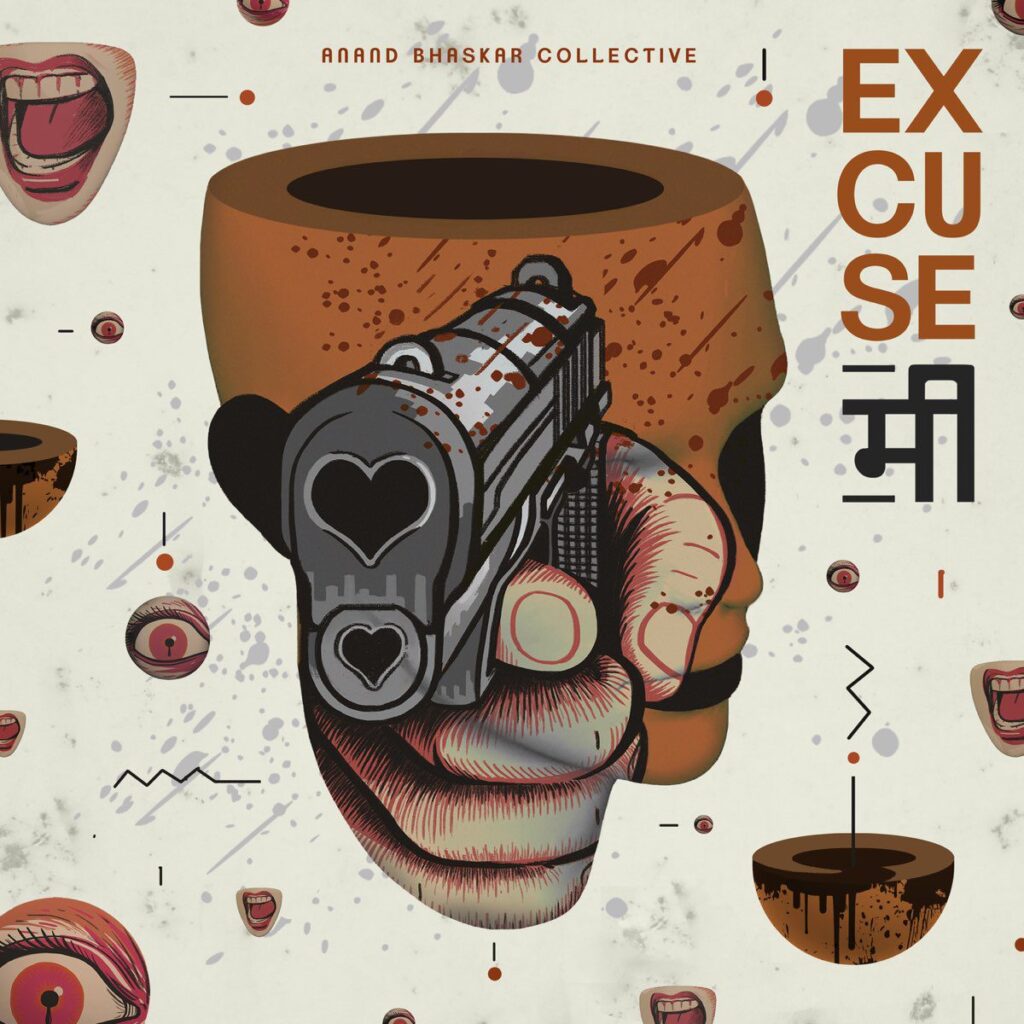
The Collective is a five-member band, currently comprising Anand Bhaskar (vocals), Shishir Thakur (drums), Hrishi Giridhar (Guitar), Ajay Jayanthi (Violin), and Neelkanth Patel (Bass). In a 2019 interview with The News Minute, Bhaskar had said, “I trained in Carnatic music for 20 years and grew up on a lot of Western music – from pop to rock to metal to jazz, hip hop and electronic music. The first songs I wrote were in English. But on the day of the 26/11 Mumbai terror attack, when I was held up in office till 2 am and rode home in a cab, I sat thinking about the disruption in people’s life, using the name of God to kill without remorse. Imagine the amount of brainwashing that would have happened – they are not afraid of the consequences, they know they’d die. And so many kids died in that spray of bullets. When I reached home that night and opened the door, this song in Hindi came to me, and I saw my guitar there. The song and the lyrics got made in 15 minutes. It’s called ‘Hey Ram’. The sophomore album also draws on themes of politics and religion, as it is thematically developed around the many futilities of it all, and creative dialogue and storytelling – forming a composite work of music that sticks with you through time.
Not every album opens with Edward Arnold blasting into your ears through your headphones, over drums and the shredding of a guitar : but this one does. The Intro samples the actor’s monologue as Daniel Webster in The Devil and Daniel Webster : “Gentlemen of the jury, it is the eternal right of every man to raise his fist against his fate” —- if you are not familiar with cinema from 1940s Hollywood, may this line be a vouching for the same, at least when contextualized by its utilization in this album. The next track, Excuse Me, continues in the same headbanging vein, Bhaskar’s vocals are menacing, and the production reminds me of some tracks off of Disturbed’s 2008 album Indestructible, and Pentagram’s Bloodywood and some rock classics — I am morbidly scatterbrained at the art of unpacking referentiality.
Malhar, the following track, is a clear standout on the album — based on the raag Miya Malhar, and empowered by Bhaskar’s stunning vocals, it is an absolute wonder to listen to. The track, however, gains its dynamism through Jayanthi’s violin, never overpowering, but retaining a shimmering quality, and even going head to head with Thakur’s drums and Chandan Raina’s guitar as the song stirs up a storm (pun intended), in the latter half.
Kaanha is a sequel, or an answer to the track Radhe on the group’s previous record, Samsara. Composed by Bhaskar and Raina, it is a cutting response from Radha to Krishna : “Janoon main tu hai kisna/Kaafi nahi hai itna/Na hai tohe koi baadha/Moorakh na hai Radha”. What I have loved about this record, as exemplified by this track, is the collective prioritizes songwriting and lyrical substance through and through — while also maintaining a solid, interesting, beautiful soundscape. A loosened grip on either always ends up marring the theatricality of music like this, and ABC does not fumble that. Faasle, the band’s most streamed song on Spotify, is proof of that. While it is toned down, it offers you lyrics like “Yaadon ki chaadar ore huye hum/Har khwab ki lehron mein girte ubharte huye hum”, and Jayanthi’s violin adds to that intrinsic sense of tenderness and exhaustion tied into each other.
Bhaskar has said before that the projects they had released early on in their career were quite angry, perhaps with or without reason — and he lays down the essence of rock there. A country like India needs a rock scene, needs its blasting, headbanging, brutal music, needs anger — and tracks like Excuse Me, Intehaa, Sawaal, needs the shredding of guitars, intertwined with our own multiplicitious cultural contexts, for self explanatory reasons. We are a country standing on the frustrations of countless laboring people, wiping sweat off our foreheads and gritting our teeth as late stage capitalism breathes down all our necks, while caricatural, grotesque billionaires flash and blind us with displays of wealth as if smirking out an ‘Eat Sh*t’ as we get taxed into oblivion.
But to come back to the album in question— ABC ends the album with Meri Jaan, with one of the best exhibits of Jayanthi’s violins, and has some of the most impressive instrumentalization in the entire album, with Thakur’s percussion — which forms the backbone of this whole record. I remember the first time I had heard the album in its entirety, I had sat back and taken in all that it is, and all that it gives. An hour long record with most songs stretching past the 6 minute mark is rare these days, especially when not stuffed with filler numbers to check the “Has An Album” box. This album is born at the hands of people with skill and passion and all of the energies of their calibre crystallise inside you, and remains there, like it has with me, for days, and years, and longer denominations of time.






